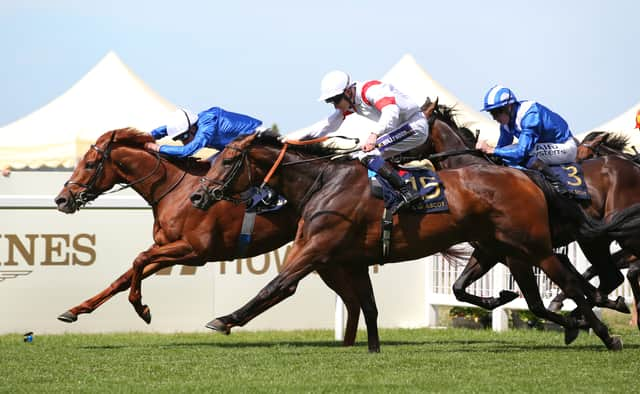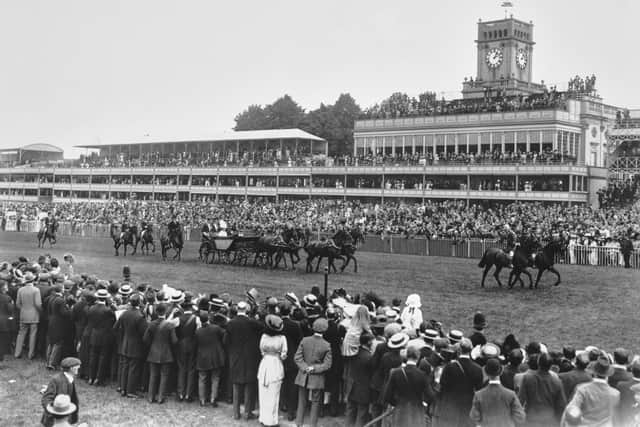King George Weekend; day two of the Ascot racing starts today - why is it named after George VI, how to watch
People in this article
This article contains affiliate links. We may earn a small commission on items purchased through this article, but that does not affect our editorial judgement.


It’s day two of the annual King George Weekend at Ascot, regarded as one of the most important fixtures of the horse racing calendar since it first began in 1951. Since then, racing enthusiasts have flocked to the racecourse to watch the main event of the weekend, the Group 1 King George VI and Queen Elizabeth QIPCO Stakes, won last year by Pyledriver, raced by P. J. McDonald.
The King George VI and Queen Elizabeth Stakes is a Group 1 flat race run over a distance of 1 mile 4 furlongs and 6 yards (approximately 2,414 meters) and open to horses aged three years and older, leading the event to be considered an insight into the future champions within horse racing; both in terms of the horses themselves and the jockeys riding them.
Advertisement
Hide AdAdvertisement
Hide AdTake a look at some of the winners from previous years if you don’t believe us; Lester Piggott, regarded as one of the greatest jockeys in horse racing history, won the King George VI and Queen Elizabeth Stakes has previously won the race, while Frankie Dettori has won the King George VI and Queen Elizabeth Stakes, including three consecutive wins from 1995 to 1997.
It was those consecutive wins that led to Frankie Dettori’s love affair with the British public, with viewers eagerly awaiting the famous “Dettori Jump,” a dismount that is as excitable to watch as it is seeing Dettori course to victory. Both Piggott and Dettori are considered legends of the race, with the pair each holding the record for most wins with seven each.
2023’s race once again will feature Pyledriver, looking to make it back-to-back victories, but bookies are favouring another contender this year; those wishing to make a flutter might be interested to know that despite Pyledriver being a solid each-way bet, it is Auguste Rodin who is the bookies favourite, currently standing at 3/1.
Why is the race called the George VI and Queen Elizabeth Stakes?


With the Royal family long known to have a penchant for horses, it makes sense that the Ascot race is named after two of England’s monarchs. The race was first established in 1951 to commemorate the Festival of Britain, a national exhibition held to mark the centenary of the Great Exhibition of 1851 and to showcase British achievements in science, technology, art, and culture.
Advertisement
Hide AdAdvertisement
Hide AdKing George VI, who reigned from 1936 until his death in 1952, was a keen horse racing enthusiast, and he played a significant role in the development and promotion of horse racing in Britain during his reign, leading to his name being used for the race and the weekend as a whole.
Queen Elizabeth, the Queen Mother, was King George VI's wife and the mother of the late Queen Elizabeth II, was also an avid horse racing enthusiast and a patron of the sport. The decision to include her name in the race title was a fitting tribute to her contributions to horse racing and her support for the industry.
How can I watch the George VI and Queen Elizabeth Stakes on TV?
Sky Sports Racing will be exclusively showing live coverage of the entire weekend on TV, but the actual race at Ascot itself is currently scheduled for 3:40 pm this afternoon. The event will also be available to stream on NOW TV for customers wishing to watch the event online.
Comment Guidelines
National World encourages reader discussion on our stories. User feedback, insights and back-and-forth exchanges add a rich layer of context to reporting. Please review our Community Guidelines before commenting.
